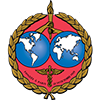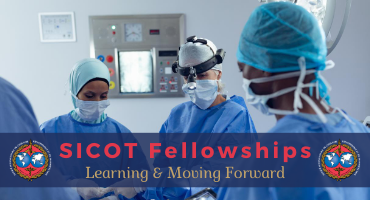Growing as an Orthopaedic Surgeon: from Economy to Business Class…
Hatem Said SICOT Editorial Secretary & SICOT-J Editor-in-Chief – Assiut, Egypt |
You all remember your first Dynamic Hip Screw (DHS) surgery, how you felt exhilarated and proud of yourself, sharing your achievement with friends and family. What a great feeling when you do an operation for the first time. It is an integral part of life to be driven to achieve new things and bigger steps.
But do you remember your 15th DHS? Probably not. After a while it becomes routine, the thrill is gone, and you just come out satisfied you have performed a good surgery but shortly afterwards forget all about it. Instead, you are probably thinking of when you will be doing the next bigger surgery…
This is adaptation, a normal fact of life. It is what makes us seek progress and improvement to satisfy our desires. Of course we should set long-term goals and aims in life but usually we go through them one step at a time.

As a young surgeon, you may remember when you travelled to a scientific meeting, and you saw your senior surgeons going left to business class, while you went right to economy. What did you think then? How amazing it would be to be flying in business class instead of these cramped economy seats. The bigger screens, nicer meals, even bigger smiles from the flight attendants, and, to make things even worse, you probably paid for your ticket, while the senior surgeon was sponsored!!!
…but there are a few things you should know…
Firstly, the physical changes: as a young surgeon you can easily work all through the night and may need to continue during the morning hours (if the work regulations allow it), but, as you get older, your body is less tolerable to these unaccustomed stresses, as can be seen by the back pain most senior surgeons have or even osteoarthritis of the knees. Therefore, the economy seats are more of a torture for them than for you.
Secondly, the senior surgeons travel a lot more often as they are invited to many meetings when they become famous and renowned, thus it is more likely that they would be sponsored. Moreover, physically it becomes even harder to go through all this travelling in economy class.
Adaptation also plays a role. It is like upgrading your small manual car to a bigger more comfortable automatic car with air conditioning. You get used to the new one and you would have difficulty enjoying your older car as before, often wondering how you travelled for hours in it. Similarly, after you start flying business, it becomes more difficult and inconvenient to fly economy.
It is this adaptation which makes us buy a bigger car or seek to perform bigger and more complex surgeries, leaving the simpler ones to others. This is a necessary fact of life that makes room for younger surgeons.
On the other hand, you are probably enjoying the economy trip more and watching all the movies, plus making new friends who are by default ‘invading your space’… but in business class, the senior surgeon is busy preparing all his last-minute lectures and not enjoying the larger screens as much. Plus, no one makes friends in business class, since everyone is separate, busy and not interested. At that level, business class becomes a necessity rather than a delicacy. Many may have to land and start work or give lectures shortly after, while you may have two to three days before or after the meeting to rest and enjoy the new place.
So, the message here is that you should enjoy ‘life in economy class’, which is reflected in the physically challenging working hours, the smaller car, and the lower pay, just as much as you enjoy your early surgeries, because each step in life has its own kind of enjoyments and requirements.















